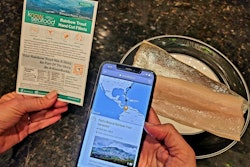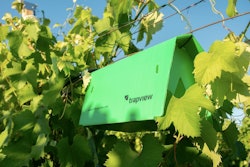
Major brands label seafood with questionable environmental claims with the potential to mislead Canadian shoppers, according to a first-of-its-kind report released today by the sustainable seafood watchdog SeaChoice. Certification, Verification or Fabrication? An investigation of seafood environmental claims in Canadian retailers found the sustainability of about two-thirds (65%) of the most common type of claims could not be verified based on the product label or website. Consumer polling undertaken in coordination with the report found that 68% of consumers check for environmental claims when making a seafood purchase.
Simply put, what our product research and polling suggests is that well-intentioned consumers deliberately sourcing environmentally responsible products are at risk of wasting their money on products with questionable claims”, said Kelly Roebuck, lead author of the report and SeaChoice representative from Living Oceans.
Credible environmental certifications and claims that contribute to improving ocean health are being undermined by rampant unsubstantiated claims on product labels.
The study analyzed 234 environmental claims across 181 seafood products from 18 supermarket locations, covering five Canadian cities and provinces. The assessed claims fell into three categories: certifications, endorsements, and self-declared claims.
Self-declared green claims – those made only by the brand, without any third-party backing – were the most common type, accounting for 44% of all claims. Only 60% of these company-declared claims provided information and were the most likely to be associated with products from fisheries or farms whose sustainability could not be verified (65%) – including a number from big seafood brands such as Aquastar, Bluewater, High Liner, Clover Leaf and Oceans.
Based on their findings, the report’s authors recommend that seafood companies, retailers, and consumers prioritize sourcing and purchasing products with verifiable claims. The report also recommends that the Canadian Food Inspection Agency strengthen seafood labelling regulations to require the disclosure of specific information on product labels and limit the use of terms like “sustainable” or “responsible” to cases backed by third-party verification. These improvements would complement the agency’s mandated boat-to-plate seafood traceability program.
“Greenwashing has significant ramifications, including potentially shifting consumer preferences to products that could actually be harming the environment,” said Scott Wallace, report co-author and SeaChoice steering committee member from the David Suzuki Foundation.
A YouGov survey commissioned by SeaChoice found 83% of Canadians are concerned about greenwashing and 78% would likely stop purchasing a seafood product if its claim was found to be greenwashing. Additionally, 90% of Canadians agree seafood companies should provide information to back up their claims.
“Shopping responsibly shouldn’t be this hard,” said Liane Veitch, report co-author and SeaChoice national manager. “Canadians should be able to count on the government to ensure that the products on their grocery shelves are labelled completely and honestly.”
















